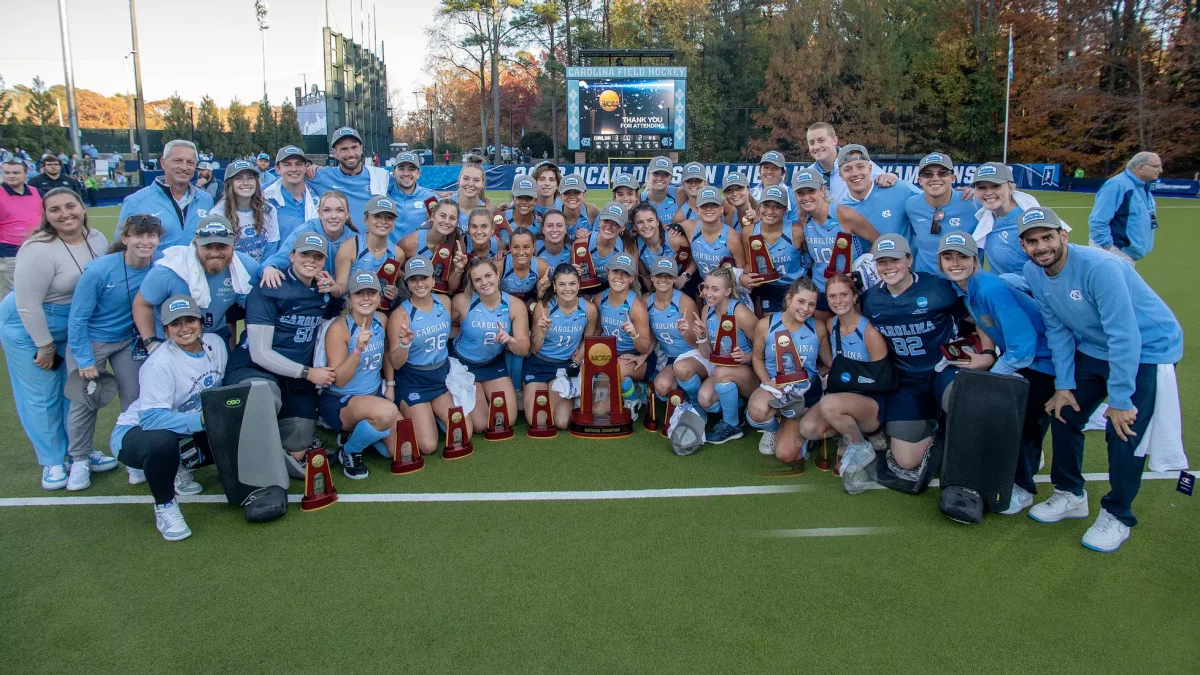Center for AIDS Research turns 25
Over a quarter century, advances in treatment have led to healthier lives and hope for a cure.

As the UNC Center for AIDS Research turns 25 this month, Carolina AIDS researchers reflected on a time when the diagnosis was much scarier.
“Forty years ago, AIDS was terrifying, it was deadly and spreading fast,” says Dr. Myron Cohen, director of the Institute for Global Health and Infectious Diseases. “Today, people with HIV can live longer and healthier lives with treatment.”
The center, supported by a competitive NIH infrastructure grant that has been successfully renewed since 1998, has made significant contributions to the field, giving patients hope. “Never has the opportunity to end the HIV epidemic been greater,” Cohen says.
In the early days of the center, advances in treatment were already showing results.
Dr. Becky White, now an associate professor and infectious disease specialist at the UNC School of Medicine, recalls a patient she treated at the N.C. Correctional Institute for Women in 2001.
White was finishing her infectious diseases fellowship in July 2001 when she met Shani Morgan, a prisoner who learned she had HIV when she was six months pregnant. Morgan’s test results showed that the HIV virus was destroying her immune system. She feared the worst.
White prescribed a treatment to keep the HIV virus from making copies of itself and to reduce the risk of HIV transmission. It would also reduce the viral load. By September 2001, the virus was undetectable.
Celebrating 25 years of research
Success stories like Morgan’s are born from years of research. The success of anti-retroviral therapy to stop the virus from replicating and the introduction of medicines that can be taken to prevent getting HIV has also galvanized cure research.
December marks the 25th anniversary of the AIDS research center, a consortium of three complementary institutions: Carolina, RTI International and FHI 360.
“CFAR was a collaborative effort initiated by Myron Cohen and me, with support from Angela Kashuba, Joe Eron and many others,” says Ron Swanstrom, director. “Prema Menezes soon joined as associate director, and Ada Adimora as co-director. Other investigators like Wendee Wechsberg, from RTI, and the late Ward Cates from FHI joined us. Since then, CFAR has become a center for excellence in HIV research.”
The center offers critical infrastructure services for HIV research through eight cores: administrative, biostatistics, clinical, clinical pharmacological/analytical chemistry, developmental, HIV/STD laboratory, international, and social and behavioral science. Services may include cutting-edge equipment for pharmacology research or support for clinical studies.
Treatments have evolved from the anti-retroviral therapy of 20 years ago to today’s long-acting injectable treatment.
“All of this is taking what we’ve learned in research and putting it into practice for the highest quality of patient care,” Menezes says.
“CFAR supports everything from laboratory science, to pharmacology, to clinical care to social and behavioral sciences,” says Dr. Claire Farel, clinical director for the UNC Infectious Diseases Clinic at Eastowne. “I think that diversity really shows its incredible strength in helping us treat all aspects of HIV. Obviously, a cure would be everybody’s happy ending. That promise is what keeps us all going.”
Morgan got a happy ending. Now, 23 years after her first treatment, the virus is still undetectable. Her son Shakir, who was born healthy, is a college senior who will graduate in May.
“This research gives everyone hope. Having HIV is not the end, as long as you follow your regime,” says Morgan.







